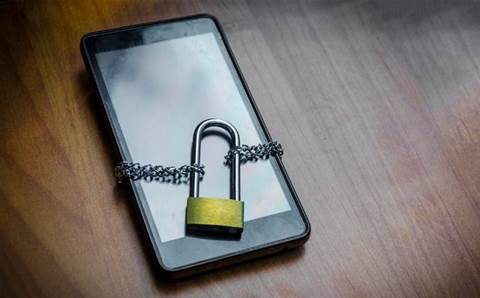The Australian government will introduce laws before the end of the year that will force end-to-end encrypted communication services providers to decrypt messages for law enforcement.
Prime Minister Malcolm Turnbull today said the laws were intended to "illuminate" the "dark places online" that "terrorists and child molestors" and drug traffickers inhabit.
The government already has laws to compel telcos to hand over information, and Turnbull said these would extend to the likes of Apple, Facebook, and Google.
The government said the legislation would also apply to device manufacturers, requiring them to help police access encrypted information.
But both Turnbull and Attorney-General George Brandis denied this equated to a backdoor.
"I'm not a cryptographer, but what we're seeking to do is to secure their assistance. They have to face up to their responsibility," Turnbull said.
"They can't just wash their hands of it and say it's got nothing to do with them. So we need to secure their co-operation."
Turnbull said how technology companies ensure they complied with the law was "a matter for them".
He also declined to answer questions about how the government would respond should encrypted comms providers - the majority of which are located outside Australia - simply declined to co-operate.
Just two weeks ago the government had said it would pursue a voluntary agreement with encrypted communications providers that would lay out a set of agreed protocols for the circumstances in which assistance is to be provided to law enforcement.
Turnbull today said while it was still his "very strong first preference" that companies volunteer their help, the proposed laws would enable the government to force assistance where it needed to.
The government claimed nine out of 10 priority investigations carried out by ASIO are being hampered by encryption.
"The internet is not an ungoverned space," Brandis told Sky News.
"The rule of law has to apply as much online as in everyday life. This is not mass surveillance and will not make people's every day dealings online insecure."
Australia's proposed legislation is expected to closely mirror the UK's Investigatory Powers Bill, which obliges encrypted communications providers to ensure they are technically able to hand over decrypted data to law enforcement in "near real time".
Brandis today said the government wanted to "impose upon the companies an obligation conditioned by reasonableness and proportionality".
The UK's 'technical capability notices' work as a first step to "prepare the ground" in case an operator receives an interception warrant, ensuring they have the technical ability to comply.
But the UK law has been fiercly criticised as vague and leaving no option but for communications providers to build backdoors into their systems, given the companies don't hold the keys to decrypt encrypted information.
A UK public bills parliamentary committee said the law should include a specific threshold that recognises it is unreasonable to hand over decrypted content from end-to-end encrypted channels.
"The damage to security may be done as soon as a company finds itself having to comply with such a notice and install a backdoor, whether or not it subsequently has to provide data under warrant," the committee said.
New Zealand introduced similar legislation four years ago.
Brandis said the Australian laws would require a warrant be obtained before a request can be made by law enforcement.
The government has cited cases like the terrorist attack in San Bernardino, where Apple refused to help the FBI break into an attacker's iPhone to access data, as justification for its plan.
The FBI later managed to unlock the iPhone with the help of Israeli digital forensics company Cellebrite.
It is also claimed that Telegram was used by terrorists to co-ordinate the November 2015 Paris attacks.
The Labor party has previously indicated plans to support the proposed legislation.













.jpg&w=100&c=1&s=0)








_(1).jpg&q=95&h=298&w=480&c=1&s=1)


